
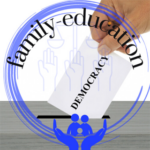
“Förderung der Demokratieerziehung im Familienalltag” (FED)
2021-1-DE02-KA220-ADU-000026502
In times of the growth of right-wing populist tendencies and the increase of insults and fake news in public discourse, it is more important than ever to subtilize the following generations for values of democracy. Acting and thinking in a democratic society requires competences that should be learned and tested from the beginning onwards. That is why the project “Förderung der Demokratieerziehung im Familienalltag” (FED, english: Promotion of democracy education in everyday family life) is dealing with the three topics: democracy, family and education. Since transmitting knowledge about democracy is often very abstract and complicated, it was decided to use a didactic approach of learning through play. That is why a game will be created. For the game it is important that there are no winners or losers and that the focus is on knowledge exchange and debate. In a playful way, all participants learn what it means to act politically and to shape their own living environment together with others. They will learn to pursue their own interests, and to put themselves in the position of their counterparts. Getting to know other points of view, weighing up arguments and understanding and respecting attitudes that differ from one’s own is all part of the democratic debate and the goal of the project “FED”.
The expected results of the project are:
1. Promoting democracy education in non-formal learning
2. Engaging, connecting and empowering young people
3. Didactic approach to learning through the creation of a game
4. Production of an accompanying booklet with discussion prompts, food for thought and philosophical questions in 7 languages
Our partners
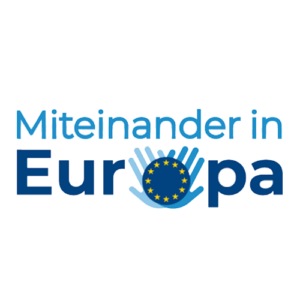
MITEINANDER
Miteinander in Europa e.V., our coordinator is based in Lüneburg. It was founded in 2012 and employs three members of staff, as well as volunteers with professional pedagogical and sociopedagogical profiles. The aim of the MIE is "togetherness" in Europe. The
European idea is promoted through social engagement activities. It focuses on training and the promotion of ideas for networking and learning in all areas of life in the European community.
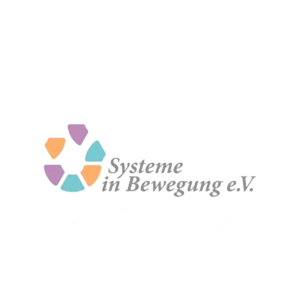
Systeme in Bewegung e.V.
culture, adult education and lifelong learning; organizes international
cooperation with similar organizations; develops and promotes the public
recognition of various marginalized groups in society.
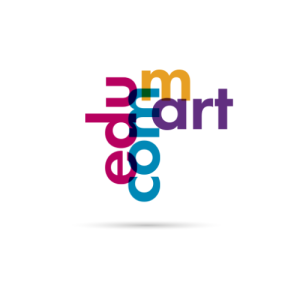
Educommart
Urban non-profit for managing EU education, culture programs for vulnerable groups.
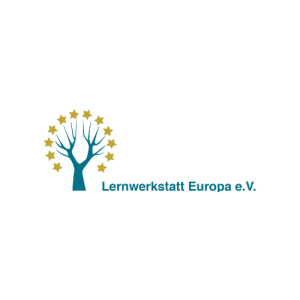
Lenwerkstatt Europa e.V.
European association for family support and youth work through various projects.
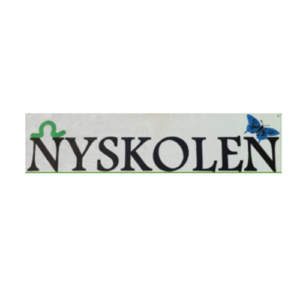
NYSKOLEN
This implies that the school operates in such a way that the students have democratic values and become active participants in the school community. In addition, students are expected to want to care for and help care for their fellow human beings, and to perceive the school as a safe, developing and meaningful community.
Results
This project results can be used to promote democracy education in non-formal education, with the main aim of engaging, connecting and empowering young people. In order to make it applicable for the EB and social work departments, a handout in the form of an accompanying booklet with discussion impulses, food for thought and philosophical questions in 7 languages has also been created and is included with each game.

The evaluation of the European survey on the topic:
The political position paper
Play "Symbolo"
From now on you can order our new game “Symbolo” for free to promote democracy in the family!
The game is a product of our #eramusplus project “FED – Promotion of education for democracy”, in which we address current issues and how they can be discussed well as a family. You can find more information through the link!
I want to receive a game for free, fill this form
Date 02-12-2023
We are going to play democracy with simbol!!
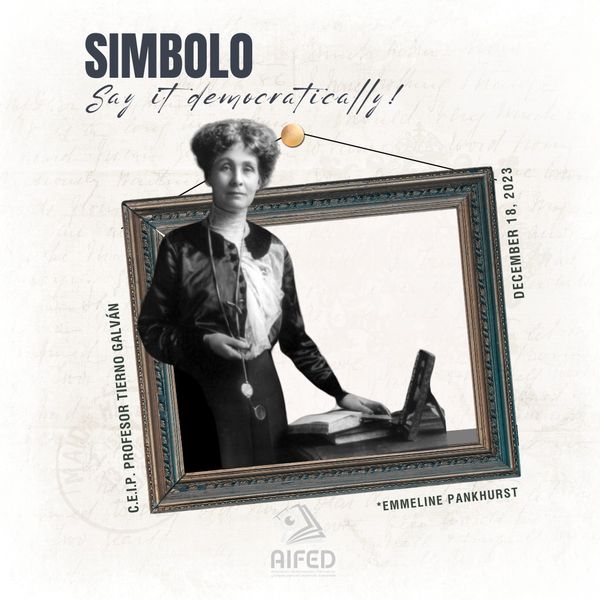
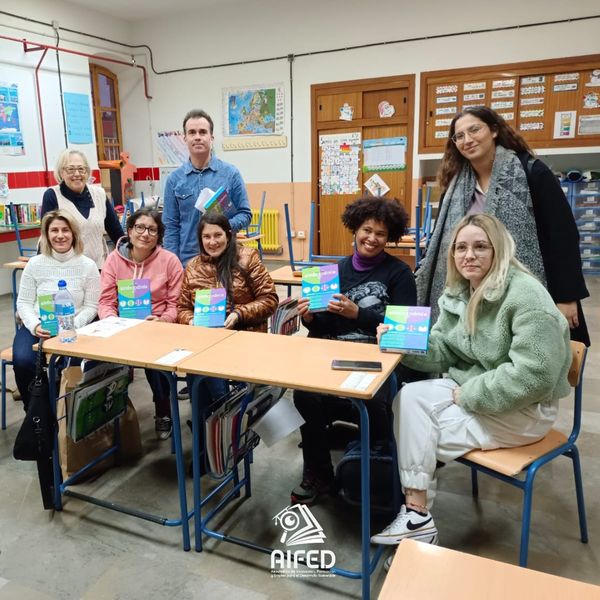
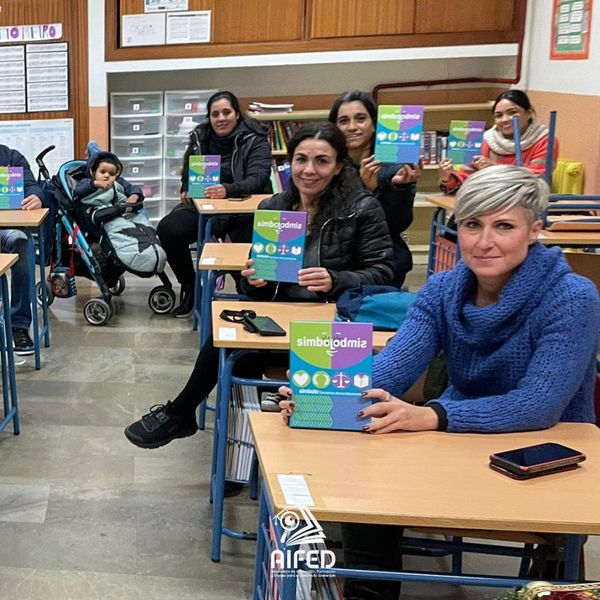
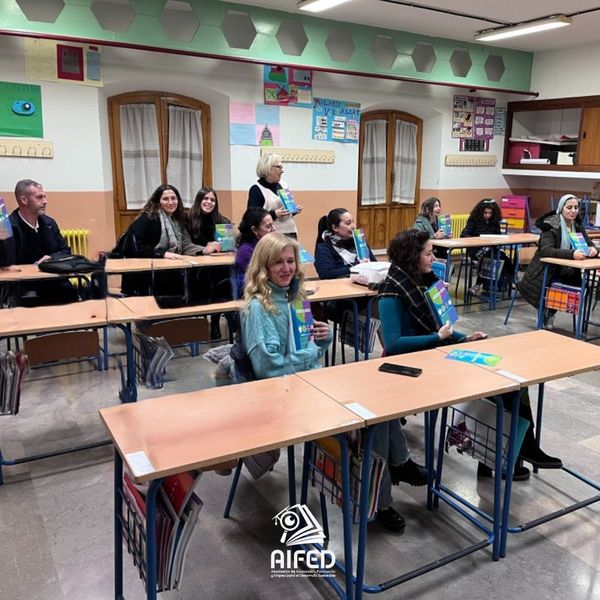
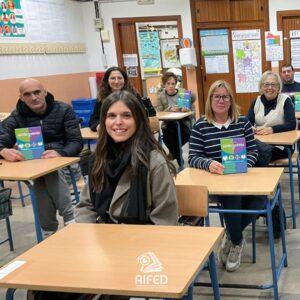
On November 30, 2023, parents at “Profesor Tierno Galván” Public Primary School in Granada received copies of the SIMBOLO board game , designed to prompt family discussions on human rights in a democracy. The event showcased the school’s commitment to fostering democratic values within the family ![]() , offering a playful and engaging tool for parents to explore these important topics with their children. The delivery marked a step towards creating meaningful dialogues on governance and civic responsibilities at the heart of Granada’s educational community
, offering a playful and engaging tool for parents to explore these important topics with their children. The delivery marked a step towards creating meaningful dialogues on governance and civic responsibilities at the heart of Granada’s educational community
Date 22/12/2023
The "best teachers" from Kazakhstan know the game Símbolo: a game for Democracy!!
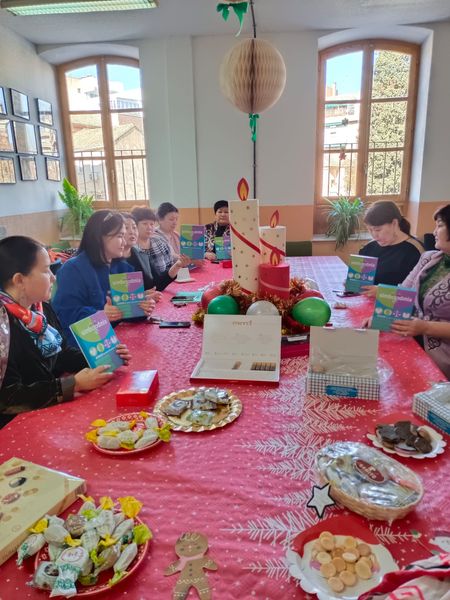
Last Meeting in Oslo 30 May – 1 June 2023
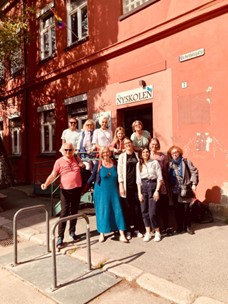
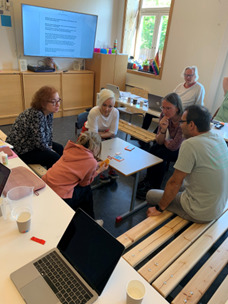
The last meeting of the FED project “Förderung der Demokratieerziehung im Familienalltag” was held in the city of Oslo, Norway.
The project’s objective is to foster the integration of democratic principles into the everyday dynamics of family life.
The meeting took place in “Nyskolen”, our Norwegian partner, which is a private school that strongly emphasizes democratic principles.
The school presentation was led by students of different age groups, highlighting the significant influence of democracy on the decision-making processes within this close-knit school community. At Nyskolen, students are encouraged to express themselves freely and move without being confined by stereotypical limitations.
The central focus of the partners’ meeting was the finalization of the game, which has been redesigned and given the name “Simbolo”. The partners collaborated in testing the card game together to determine the final form of this project.
As in every meeting, the cultural part was not lacking, in fact apart from our work, we took the opportunity to visit several notable attractions in the city. First of all, the municipal park known as Vigeland Park and the impressive Munch Museum. We also had the chance to admire the striking Oslo Opera House and enjoyed leisurely walks with breathtaking views of the Norwegian Sea and the magnificent architecture around us.
Thanks to our partners for this wonderful experience and for their invaluable collaboration!
SECOND MEETING
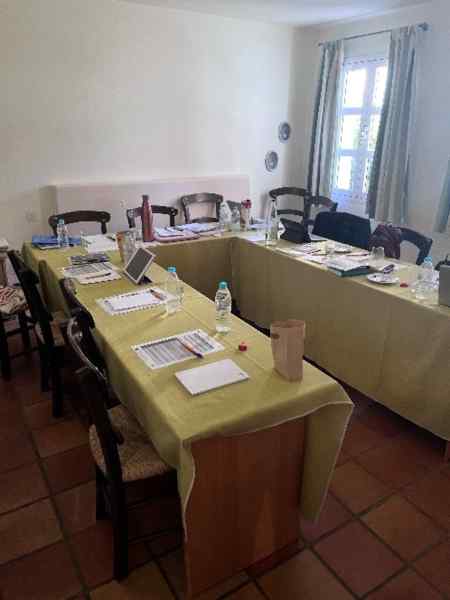

The partners of this project have met for the second time, on the island of Crete.
We started the day with a welcome from the host and a greeting from the coordinator.
At the beginning there was an interesting debate on the decision on the type of game we have to create and on the rules of it. All participants have actively contributed to the discussion with very interesting ideas. Thanks to everyone’s contribution, we have been able to transform this game, which initially started as a card game, into a board game. The environment in which this meeting took place has greatly influenced the change of the game, i.e., Greece: the cradle of democracy, mythology and legends.
In deciding the new game, we thought about the mythology of the Labyrinth and the Minotaur. Each family will have to free the democracy trapped in the middle of a spiral by answering some questions on current issues and knowledge that will allow them to open the doors and set the democracy free.
The topics we talked about most were:
- The importance of democracy in families;
- The transformation of the game (the change from a card game to a board game);
- The idea of adding knowledge questions;
- The board game design.
At the end of the meeting, we divided the tasks, we decided together the date for the next Zoom meeting and we received the certificates of attendance.
The dinner took place in the village of Agios Nikolaos, where we tasted the typical food of Crete and got to know our partners even better.
It’s been a pleasure and we are looking forward to work together again!
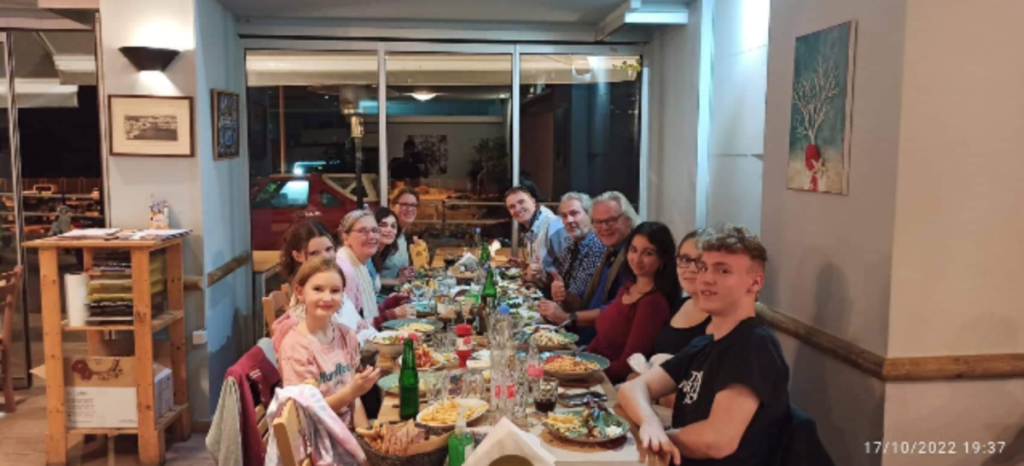
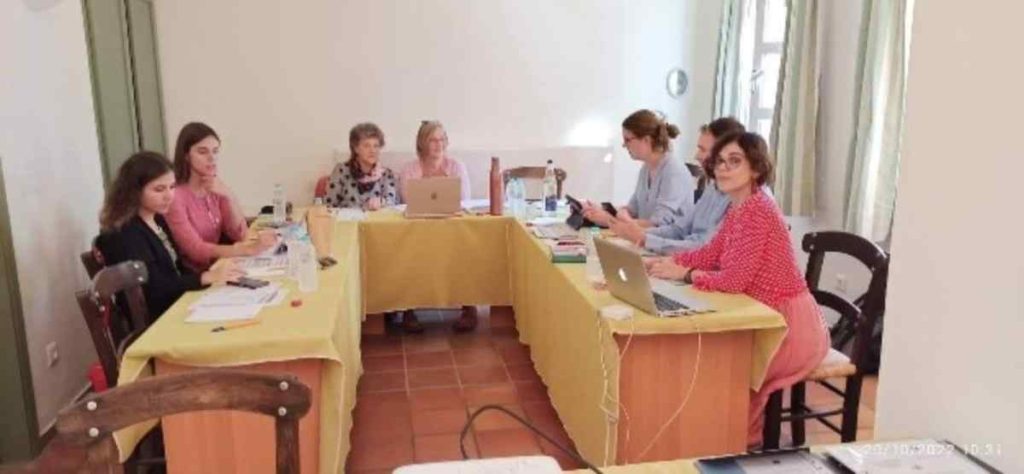
The first meeting of the project “FED – Förderung der Demokratieerziehung im Familienalltag” in Lüneburg, Germany from 27.04 – 29.04.2022
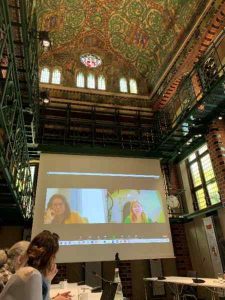
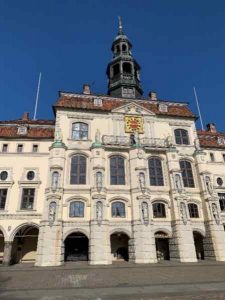
From April the 27th to 29th was the first meeting of the EDF project in Lüneburg, Germany. Together with partners from Norway, Greece, Bulgaria and Germany, the upcoming project work was discussed.
First of all, all participants greeted each other and introduced themselves. The deputy mayor of Lüneburg was also a guest. The project started with everyone speaking about their personal experience of democracy. Afterwards, the results of the first survey of the respective project partners were presented and evaluated. These results were important for further addressing the development of the project game. The development of the game and the naming of the project game was the focus of the first meeting. At the end, further tasks were distributed and an online meeting was planned to finally decide on a game idea.
After the meeting, all project partners had dinner together as a closing of the first meeting. Thank you all!
